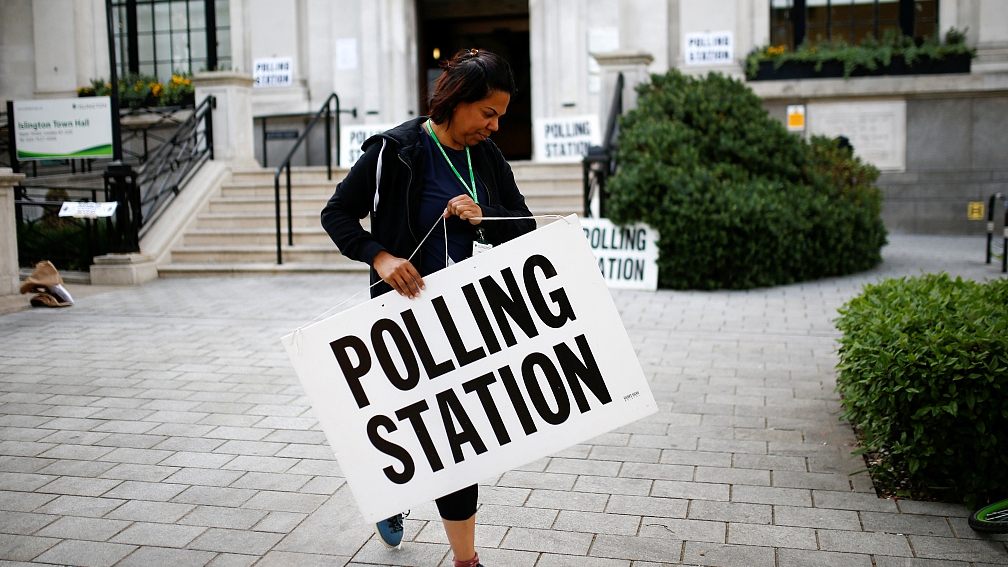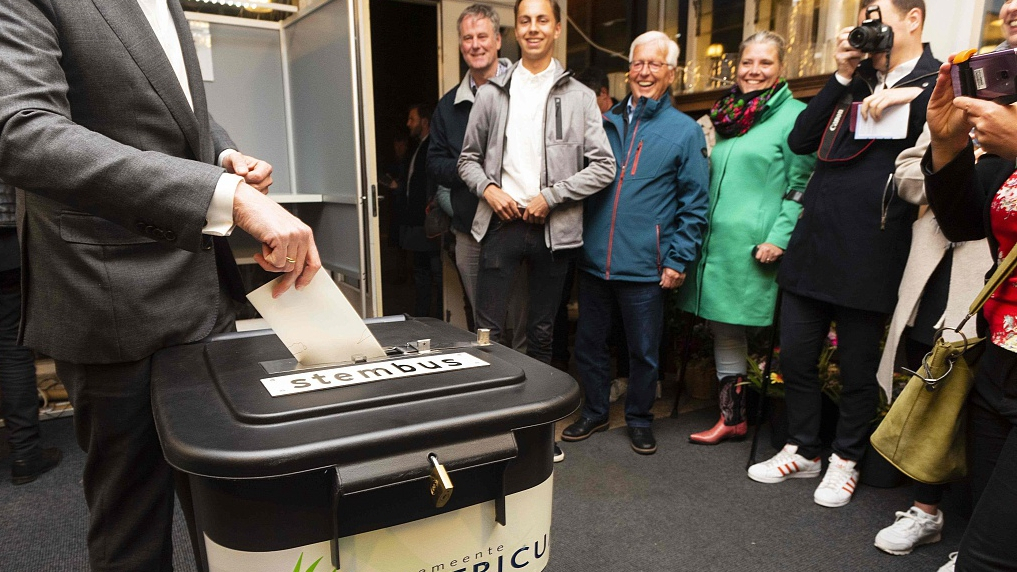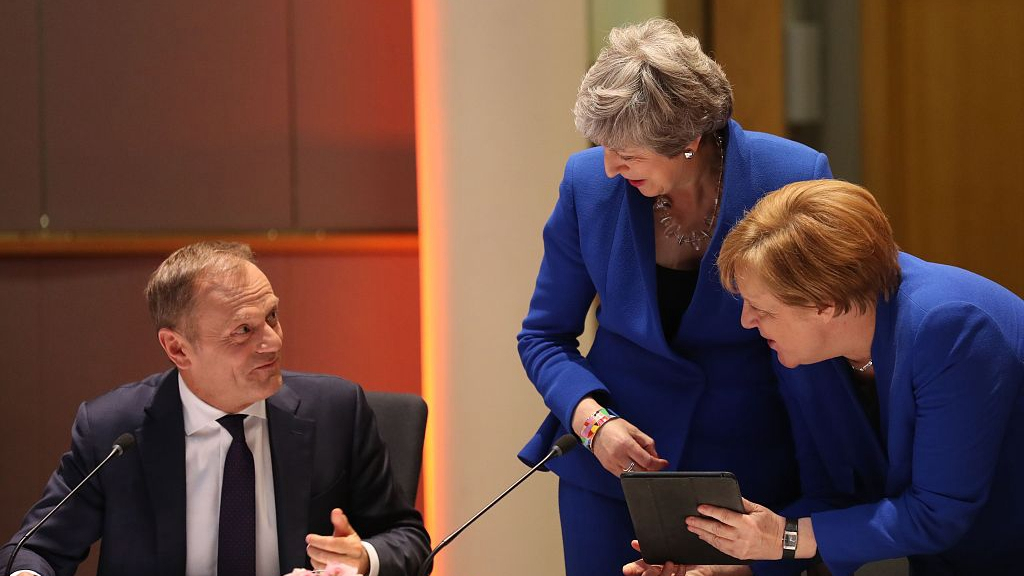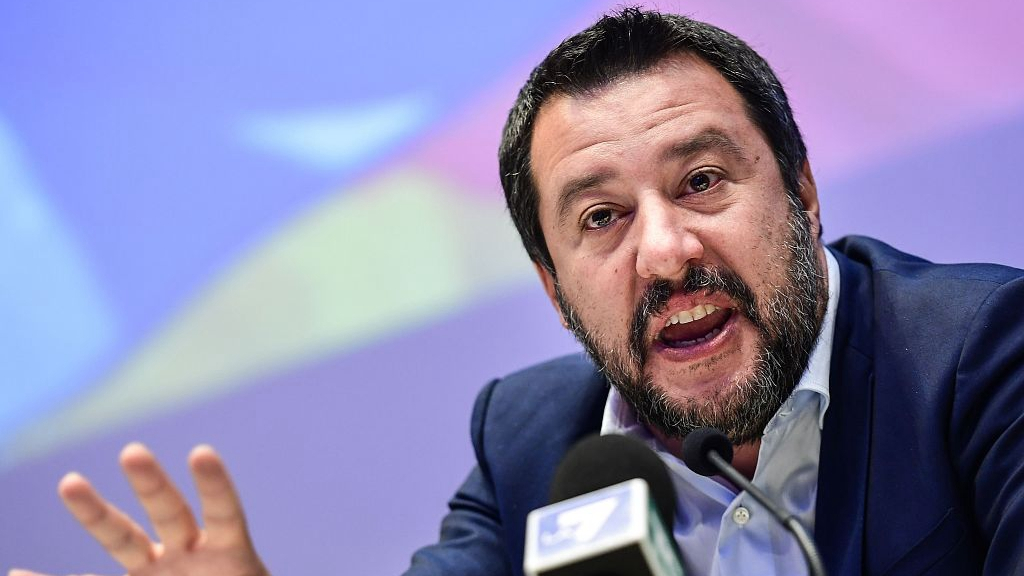
Europe
19:03, 23-May-2019
Stick or twist? EU's power blocs teeter as elections begin
By John Goodrich

The biggest election in Western democracy began on Thursday, with more than 425 million voters eligible to take part across 28 national polls that will feed into a new European Parliament.
The pro-EU establishment is worried. This election cycle probably won't sink the EU's longstanding power blocs – the European People's Party (EPP) and the Party of European Socialists (S&D) – but polling projections suggest it will shake them, and force new alignments.
Read more:
Across the EU, populist-nationalist forces and other newcomers are posing challenges that the center-right and -left parties – often longstanding holders of power – have struggled to answer: Tack to the extremes, retain their position or shift to the center.
Different parties have tried different options with limited success, pointing to disenchantment with the status quo as much as specific policies. European Council on Foreign Relations polling indicates support for EU membership is at a record high among its citizens, despite the increased support for eurosceptic parties.
In Germany the center-right Christian Democratic Union (CDU) continues to lead a coalition, but party rock Angela Merkel is heading for the exit as chancellor and the success of the far-right Alternative for Deutschland has caused stresses both in her party and its alliance. Merkel's replacement as CDU leader, Annegret Kramp-Karrenbauer, has opted to shift right – but the party's poll ratings haven't improved.
In Spain, the Popular Party (PP) also moved further to the right in a bid to counter the threat of populist group Vox in the April general elections – and recorded its worst result in decades.

The first voters cast ballots in the European Parliament elections at Castricum railway station in Castricum, The Netherlands, May 23, 2018. /VCG Photo
The first voters cast ballots in the European Parliament elections at Castricum railway station in Castricum, The Netherlands, May 23, 2018. /VCG Photo
In the Netherlands, center-right prime minister Mark Rutte – a possible contender for one of the top EU jobs – took a different approach, debating far-right leader Thierry Baudet one-one-one debate on Wednesday evening. The men's respective parties were neck-and-neck on 15 percent in the polling as the first ballots were cast on Thursday.
In Austria, the Freedom Party was brought into government, a controversial move that was lauded as a possible model for center-right parties faced with far-right challengers – but the coalition imploded in recent days with the Ibiza-gate scandal.
And in Britain, polls suggest a party with only one policy – the Brexit Party – will win the election, attracting five times as many votes as the governing center-right Conservative Party. Teaming up with the Brexit Party or staking its own position with be a pivotal strategic decision for the next prime minister, assuming Theresa May soon steps aside.

Britain's Prime Minister Theresa May (C) and Germany's Chancellor Angela Merkel (R) look at a tablet, next to European Council President Donald Tusk (L) at The European Parliament in Brussels, April 10, 2019. /VCG Photo
Britain's Prime Minister Theresa May (C) and Germany's Chancellor Angela Merkel (R) look at a tablet, next to European Council President Donald Tusk (L) at The European Parliament in Brussels, April 10, 2019. /VCG Photo
Perhaps most spectacularly, in Italy, former prime minister Silvio Berlusconi's alliance has struggled for traction as the far-right League led by Matteo Salvini entered government and is at the forefront of the populist movement in the EU.
The European Parliament's final projection for the May 23-26 elections suggest the EPP could lose around 40 seats, and worse news may follow if Hungarian Prime Minister Viktor Orban's Fidesz party quits the group (it is currently suspended) in favor of a populist alliance coordinated by Salvini.
The projected shifts could have a major impact post-election. A good result could catapult the already influential Salvini into a role as an EU powerbroker, frustrating and shaping the agenda of the parliament.
"If the populists formed the majority, unlikely as that is, that would have a huge transformation to the vision and behavior of the European Parliament," Anthony Zito, professor of European Public Policy at Newcastle University, told CGTN.
"The degree to which the populists do well will have an impact on the European Parliament's ability to form a workable majority to conduct its activities. The more the centrist positions have to build alliances across the spectrum may make the business of the European Parliament more difficult as well as raise questions about the legitimacy of the European Parliament."

Italy's Interior Minister Matteo Salvini speaks during a meeting of European nationalists in Milan, April 8, 2019. /VCG Photo
Italy's Interior Minister Matteo Salvini speaks during a meeting of European nationalists in Milan, April 8, 2019. /VCG Photo
A centrist alliance involving the Alliance of Liberals and Democrats for Europe and French President Emmanuel Macron's La Republique En Marche! (LREM) movement, and possibly the resurgent Greens, could end up being a kingmaker post-election.
LREM, along with the far-right National Rally which tops the polls heading into the elections, has helped put both the traditional center-right and center-left on life support. The Republicans – founded by former president Nicholas Sarkozy – is barely in double figures in the polls. The Socialists – the party of former president Francois Hollande – are faring even worse, at around five percent.
Few pro-EU leftist parties are benefitting from the struggles of the center-right (one exception is Spain where the Socialist Workers' Party is polling well), and the S&D grouping is also projected to lose around 40 European Parliament seats.
"Social democratic parties are struggling throughout Europe, their group might be considerably reduced, this might be a massive blow to their party family," Niko Switek, assistant professor at the Department of Political Science at Washington University, told CGTN.
As the "big tent" politics of recent decades breaks up and party systems fragment, the sometimes staid EU political process has rarely looked so interesting. Over the four-day election, voters will decide how big a jolt they want to give to the EU establishment.

SITEMAP
Copyright © 2018 CGTN. Beijing ICP prepared NO.16065310-3
Copyright © 2018 CGTN. Beijing ICP prepared NO.16065310-3